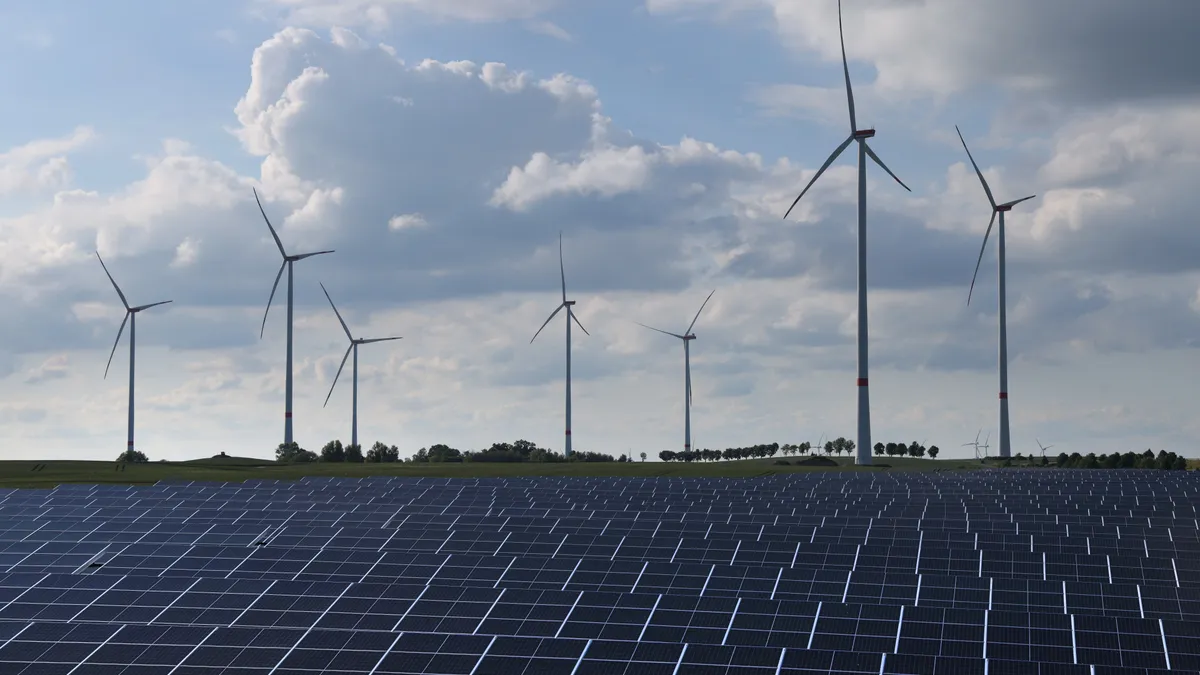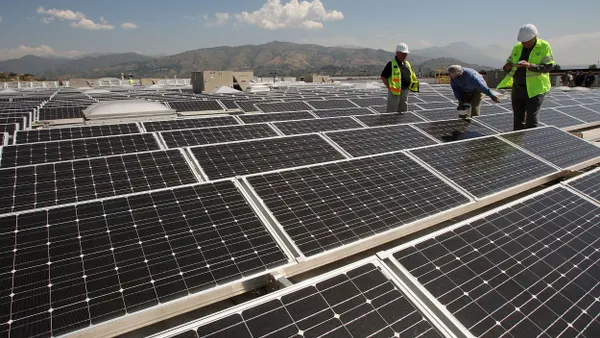Dive Brief:
- A group of 13 House Republicans sent a letter to their Senate counterparts Friday asking the Senate to make further alterations to changes made to the Inflation Reduction Act’s clean energy tax credits, as the chamber takes up its portion of the budget reconciliation process.
- The Republicans were led by Virginia Rep. Jen Kiggans, who said in a June 6 press release that though she supported the House-passed “One Big Beautiful Bill Act” as it stands, “there remains significant room for improvement in preserving the clean energy tax credits.”
- The requested changes largely mirror those requested by Kiggans and her colleagues prior to the House’s passage of the bill. The group’s letter cites more than $14 billion in clean energy projects that have been canceled this year, with signatories stating that “project cancellations will continue to snowball” if Congress does not provide “business certainty as these provisions are phased out.”
Dive Insight:
Kiggans and a nearly identical group of House Republicans wrote to their House colleagues last month seeking positive changes to the clean energy tax credit phaseout plan that came out of committee work on the reconciliation bill. Instead, the House-passed version of the bill imposes a faster phaseout timeline, including a repeal of tax credits for projects that don’t begin construction within 60 days of the bill’s enactment.
The Republican lawmakers in support of IRA’s clean energy credits asked that the Senate alter that provision — along with a foreign entity of concern provision that was again called “overly prescriptive” — and maintain tax credit transferability throughout the credits’ lifetime. The group said that though they were “proud to have worked to ensure that the bill did not include a full repeal of the clean energy tax credits,” they remain “deeply concerned about those provisions.”
The tax credit phaseout schedule included in the House-passed bill, “would cause significant disruption to projects under development and stop investments needed to win the global energy race,” the letter said. The lawmakers said the overall approach to the tax credit changes “jeopardizes ongoing development, discourages long-term investment, and could significantly delay or cancel energy infrastructure projects across the country.”
The group recommended the 60-day timeline and the bill’s “placed in service” standard should be replaced with a “commence construction” requirement. The group said that due to permitting delays and other issues outside of project developers’ control, it is hard for the businesses to be sure when their projects will be “placed in service.” Swapping that language with a “commence construction” provision would give companies more flexibility to understand if they are eligible for certain credits and give “the investment clarity and lead time required for energy projects to succeed,” according to the Republican lawmakers.
“Our position has always been that the energy tax code should be modernized in a way that promotes fiscal responsibility and business certainty,” the letter said. “Fully realizing that balance requires improvements to the House-passed version of … the One Big Beautiful Bill Act.”
Kiggins was joined on the letter by Reps. Andrew Garbarino, Mike Lawler and Nick LaLota of New York; Mark Amodei of Nevada; Don Bacon of Nebraska; Brian Fitzpatrick and Rob Bresnahan of Pennsylvania; Juan Ciscomani of Arizona; Gabe Evans of Colorado; Young Kim and David Valadao of California; and Thomas Kean Jr. of New Jersey. Garbarino reportedly slept through the full House vote on the bill — which passed by a single vote — but later said he looks forward to supporting the bill’s passage when it comes back from the Senate.
Utilities and renewable energy experts have said the current 60-day timeline would “trigger a scramble” to do as much as possible within that window, while other clean energy experts called the House-passed bill “unworkable” in its current form.











